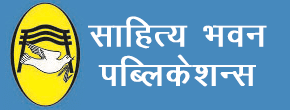To understand how the administration of government develops, the student must be aware of the great changes that have taken place in our society during the last half-century. These changes have enormously increased—in volumes and in kind—the functions placed upon government, and have required the development of a new Public Administration that was understood at the dawn of the present century.
The revolution in science and technology, rapid urbanization, population explosions, the problem of environmental degradation and innovations of the new management techniques have greatly altered the tasks and responsibilities of government and of those who administer our governmental agencies. Formerly the primary objective of the study of Public Administration was to make government more efficient and economical. This goal is still important. But today the increased emphasis is placed on the role of Public Administrators in the formulation of policies and programs to cope with the pressing problems and needs of a rapidly evolving developing society. No longer is it believed that administration can be kept separate from policy and politics. Public Administration works with and under the direction of politicians, who have an indispensable role in democratic government. How to achieve democratic control over bureaucracy – government officials – so that it faithfully and effectively carries out the policies of the elected representatives and political masters is one of the leading problems of democratic governments everywhere.
The book presents a unified picture of what Public Administration is and how it is applied to various forms of human endeavor in this second decade of the century. It gives a basic knowledge of public organizations and managerial functions in the most useful and organized way. Although the book follows a widely used ‘management approach’, however, an attempt has been made to eliminate the excessive use of management jargon. Some of the core chapters of the book are Evolution of the Discipline of Public Administration, Philosophy, Science, and Art of Public Administration, Wilson’s Vision of Public Administration, Approaches to the study of Public Administration, Comparative Public Administration, Bureaucracy and Development, New Dimensions in Public Administration, New Public Management Perspective, The New Public Service Approach, State versus Market Debate, Public-Private Partnership, Concept of Development and Anti-Development, Theories of Organisation, Public Administration and Policy-making, New Public Administration, Theories of Leadership, Decision-making, Scientific Management, Theories of Motivation, Zero-base Budgeting, Outcome Budget, The Concept of Bureaucracy, Indian Model of Ombudsman, Administrative Ethics, Role of Civil Society, Social Audit, Citizens’ Charter, Pressure or Interest Groups, Good Governance: Concept and Application, Information Technology and Public Administration: E-Governance, Administrative Reforms and Self-Help Groups.
The present volume presents a fairly comprehensive theoretical aspect of various dimensions and issues of Public Administration. The book has been written primarily for students of Indian Universities. Though the administrative problems of Britain and the United States of America are discussed, yet special attention has been paid to the problems of the Indian Administration in light of the recommendations of the seventh Central Pay Commission. The book is a recommended reading for candidates appearing in the Civil Services Examinations.
Public Administration [लोक प्रशासन (प्रशासनिक सिद्धांत)] Book Contents
Public Administration: An Introduction
PUBLIC ADMINISTRATION : AN INTRODUCTION
1. Public Administration : Meaning and Scope
2. Importance of Public Administration
3. Role of Public Administration in Developed and Developing Societies
4. Public Administration and Private Administration
5. Public-private Partnership (PPP)
6. Approaches to The Study of Public Administration
7. Philosophy, Science and Art of Public Administration
8. Evolution of The Discipline of Public Administration
9. Wilson’s Vision of Public Administration
10. Comparative Public Administration : Reference to The Riggsian Models
11. Concept of Development and Post-development Theory or Anti-development Thesis
12. Development Administration : Fred W. Riggs
13. Bureaucracy and Development
14. New Public Administration
15. Public Administration and Policy-making
16. Public Choice Approach
17. New Public Management [NPM] Perspective
18. State vs. Market Debate
19. Ecology of Public Administration
20. Administrative Culture
21. Good Governance : Concept and Application
22. Entrepreneurial Government
23. Information Technology and Public Administration : E-Governance and Digital India Programme
24. Challenges of Globalisation, Liberalisation and Privatisation : Impact on Public Administration .
25. Organisation : Formal and Informal Organisations
26. Organisation Theory : Approaches or Paradigms
27. Principles of Organisation
28. Hierarchy
29. Span of Control
30. Unity of Command
31. Co-ordination
32. Chief Executive
33. Line and Staff
34. The Department
35. The Public Corporation
36. The Independent Regulatory Commission
37. The Government Company
MANAGEMENT
38. Management and its Tasks : Context of Participative Management
39. Scientific Management : Frederick W. Taylor
40. Theories of Leadership
41. The Concept of Authority and Responsibility
42. Delegation of Authority
43. Centralisation and Decentralisation in Administration
44. Supervision
45. Decision-Making Theory : Herbert Simon
46. Motivation : Maslow, Mcgregor & Herzberg
47. Communication in Administration
48. Control
49. Human Relations in Management : Elton Mayo
PERSONNEL ADMINISTRATION
50. The Concept of Bureaucracy : Max Weber
51. The Concept of Civil Service
52. Evolution of Civil Services
53. Personnel Administration : Recruitment
54. Personnel Administration : Training
55. Personnel Administration : Promotion
56. All India Services : Nature, Role and Rationale
57. All India Services : IAS, IPS & IFS
58. Relationship Between Specialist and Generalist Administrators
59. Issues of Anonymity and Neutrality vs. Commitment
FINANCIAL ADMINISTRATION
60. Financial Administration : Elements of Budget
61. Budgetary Process in India
62. Zero-Based Budgeting
63. Performance Budgeting [Reference to Planning- Programming Budgeting System (PPBS)]
64. Control Over Public Expenditure : Estimates Committee and Public Accounts Committee
65. The Comptroller and Auditor General of India
66. Accounts and Audit
CITIZEN AND ADMINISTRATION
67. Integrity in Administration : Ethics and Values in Public Service
68. The Institution of Ombudsman
69. The Lokpal and Lokayuktas
70. Control Over Administration : Legislative, Judicial, Executive and Popular Control
ASPECTS OF THE INDIAN ADMINISTRATION
71. Administrative Reforms : Insights from Indian Experience
Select Bibliography






















Reviews
There are no reviews yet.